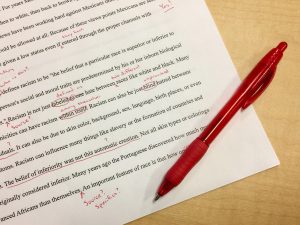Your cart is currently empty!

Both Sides of the Publishing Coin
 By MJ Moores
By MJ Moores
As a writer working toward finding an agent and getting that all-elusive contract with a large (or even medium-size) publishing house, I have felt the burn of futility. At the same time, now that I’m an Acquisitions Editor for a small publishing house, that burn is leaving a surprising mark on the “other side”, too. I never really thought about what agents and publishers experienced.
In fact, I had no idea just how many poorly prepared manuscript packages existed regarding queries and submissions.
I swear, I’m not making this up.
As a professional writer, I prepare my own cover letter, synopsis blurb, 1-pager, and full synopsis along with a professionally edited manuscript prior to reaching out to agents and publishers. So, it boggles my mind when I get anything less in my in-box as an Acquisition’s Editor.
I’ve been to conferences and attended workshops where agents and publishers claimed they might get any of the following across their desks:
- Impersonal address (dear agent)

- Typos
- Poor grammar
- Blubbering
- Attitude
- Unnecessary Bios
- Little info about the manuscript
- Boring first chapters
- Unedited manuscripts
- Poor craft quality (this is huge!)
I never really believed them – you know, the agents and publishers – because they’re agents and publishers, right? They’re going to find a way to say it’s not them. I know what getting published means to me. I see other writers at the same conferences and workshops and I know I’m not the only one trying to make a good impression, and I’m not the only one going through the same push back.
The problem is, for every one writer who takes the time to research:
- How to write a query letter

- How to put a proposal together
- How to write a synopsis
- How to tighten your prose
- How to engage your reader
- How to raise the stakes & increase tension
- How to infuse an emotional connection
- How to write conflict
- How to work within your chose genre(s)
- How to write (period)
there are dozens more who either do just enough nosing around to think they know what they’re doing, or don’t even bother. Regardless of which one it is, the impression that comes across is sloppy and unprofessional.

This shocked me.
I’ve put out a call for manuscripts, I’ve participated as a publisher on #PitMad on Twitter… but 98% of the submissions I receive fall short of any one or multiple items listed above. I thought, geeze, as a writer I’m having such a hard time finding an agent for my MS, there must be a ton of great writers out there, so why aren’t any of them submitting to me?
There are a ton of great authors out there, but they’re continuing to hold their breath waiting for that big-name agent to get that lucrative publishing contract with a top-5 house. And getting a contract with that publisher is like catching lightning in a jar. What a lot of writers forget is that with a little research, they can find a small publisher willing to bend over backwards for them.
As an AE for an amazing, small local publisher who delivers only high-quality books, I worry about the quality of queries and manuscripts filtering through the system. While I applaud Indie authors for being brave and organized enough to self-publish (I know what it takes, because I’ve done it), I have to wonder how many amazing writers are bi-passing “the little guy” but aren’t ready to do this themselves? Are these writers, perhaps, lacking the experience and drive to do their book-babies justice, and might they be better off with a smaller publisher?
It’s a shame when I hear, “I might as well do it myself instead of split my royalties with a small publisher who’ll make me do everything anyway.” Because it’s not true – but that’s conversation for another blog.
Even though the “pickings are slim” right now for my imprint, I know these are just the early days. But I tell you, if we are talking about whether it is an agent or mid-sized publisher determining who to take on, and who to not take on, or if it is me with a small publisher: I do exactly what they do – pass over the ones with errors.
I am very specific in my feedback:
- If a story has merit, I let the author know.
- If a story is good, but doesn’t fit the imprint, I let the author know.
- If a story is good but doesn’t jive with what I’m looking for, I let the author know.
… Because I, too, hate those form rejection letters.
But I, too, send them out.
You might think I could afford to give someone a chance when pickings are slim, and you’re right – I would. But I need more than just the germ of an idea to work with. I need evidence that the writer submitting their project has a heightened awareness of their craft and a solid understanding of good storytelling.
SPOILER ALERT
I will not devote my time to teaching someone how to write during this stage of the process.
Sure, I give workshops and provide manuscript critiques – but as a fellow writer. That is for another place, another time. As an Acquisitions Editor, time is money. I will not deny that. It’s not just my time and my money. It’s the company’s time and money. And I will not spend countless months working with a new writer who either isn’t open to learning, or doesn’t already have a good grasp of the basics.
A writer doesn’t need to have studied the craft in college or university to be good at what they do. They don’t even need to have paid for a single workshop or attended a conference. If they are able to teach themselves via YouTube, PodCast, Free Webinars, whatever – then all power to them.
They’ve got a grounding.
And this, I think, is what separates the good small publishers from the ones simply trying to make a buck. This is also what separates the well-prepared writer from the not-so-well-prepared writer.
However, even with my unique insight into being one of the small “gate keepers” of traditional publishing, I still feel slighted when I get a form rejection from an agent about my latest book query. It doesn’t happen often anymore, but when it does, I know I need to take a serious look at what I’m submitting to make sure I’m not the problem 😉. And the takeaway from all of this is? So does each writer who submits to any publisher – large, medium, or small. It’s a matter of switching “hats” and perspectives: remembering what both sides need to make this process a success.
Very interesting! I think small publishers are wonderful.
At the age of 56, I went Indie after attending a small publisher’s workshop, rewriting my manuscript based on what I’d learned, submitting exactly as prescribed, waiting 11 months to hear, and receiving a form rejection by email no less (the submission had to be paper) with no explanation of why my manuscript didn’t fit.
I’ve been a slush pile reader for Harlequin, I know there are a variety of possible rejection slips. I didn’t appreciate getting a blanket rejection that taught me nothing.
At my age, I felt I had no time to waste so I self-published for the second time. It’s been 11 months. I’ve spent every spare minute listening to podcasts and reading, learning how to promote myself. I’ve sold at least 1,000 copies in my first year. The only down side to indie publishing that I see is that my book is not eligible for most contests. I hope my finished product out there in the world acts as my submission to some agent. I don’t know if I’d go with a publisher at this point, I’d have to see what they had to offer.
It sounds like you work for a solid company, MJ. Good on you.
Thanks for the feedback, Sandy 🙂
It sounds like self-publishing was the right path for you, I’m glad. It isn’t always and it’s often difficult to find traditional representation. Have you tried “Brag Medallion” by chance? It’s not a contest but an Independently run evaluation board (based out of BC) who celebrate well-written and produced indie-books. I used to read for them and book 1 in my SFF series was awarded a medallion. Readers Choice is also another respected resources for indie-publishers. They will review your book (1st one free) and they have contests.
Sounds like you’re well on your way 🙂
I researched some indie prizes but I was confused as to what was a scam, some had very steep entry fees. I will check these ones out. Thank you!
Hi Sandy, regarding contests, if you’re being asked to pay more than $80-ish then you really need to question “why”? Consider looking into ALLi (Alliance of Independent Authors) — they are a fantastic resource to have in your back pocket.
What a terrific article, MJ! A real wake-up call for all of us to “get it right” before we send it in. Thanks for the awesome tips.
You’re welcome, Deb!
Glad the article spoke to you 🙂
I think a lot of what we do “traditionally” speaking is revising and rewriting — even our query letters! But the biggest thing to remember is that if the big 5 publishers are no longer a viable option for you, take a moment to research what the “little guy” can do for you before deciding to go Indie. Being an Indie author is amazing and has a ton of advantages… but you need the right kind of mindset to be able to pull it off.
Good luck!
Great article! I have always been a stickler for following publisher guidelines. But sometimes I feel like it’s hard to be heard in all that din. Nice to know someone is listening!
Thanks, Kim!
This is one of the reasons I’m proud to work for my small publisher — the attention to detail both during the querying process and the publication process. As Sandy mentioned, not all small presses are equal and it’s important to do your research before signing on with one. The last thing anyone wants is to get stuck with someone only in it for the money.
Great article MJ. It’s hard to image these days how many people feel the “rules/guidelines” don’t apply to them.
Thanks, Nanci!
I know, right? I had no idea this kind of lack of research still happened — and to this extent. I totally understand now why agents and other publishing houses “don’t even look at” a query letter with errors in them. If you mean business, as a writer, you better be prepared to show you can write 😉
Interesting read! I shall pass this around. 🙂
Thanks, Jan!